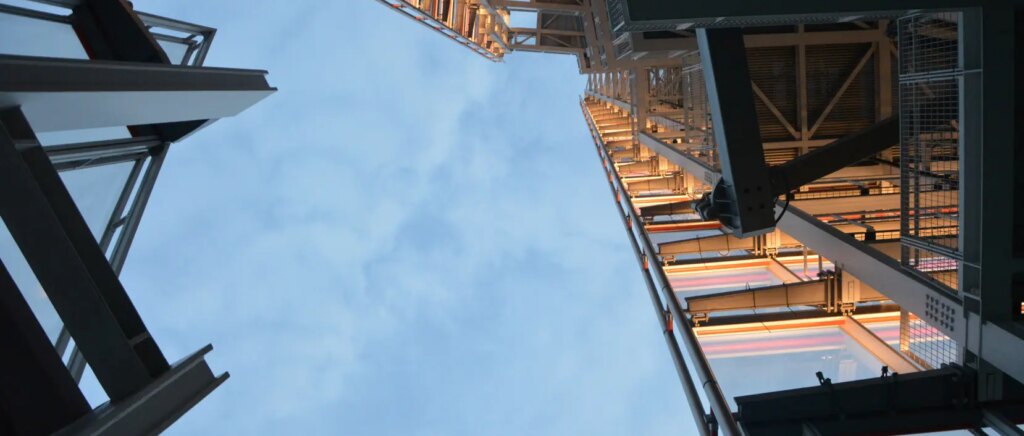Contractor insolvency has become a growing concern within the construction industry.
Construction firms continue to face many challenges, including high competition, low-profit margins, fluctuating material costs and exchange rates, late payments, and supply chain issues, which bring the increased risk of the company falling insolvent. Insolvency is defined as a company’s inability to pay debts promptly or when its liabilities exceed the value of its assets. When a contractor becomes insolvent, it can create significant financial and legal challenges for other parties involved in a construction project.
In this article, we will explore the signs of contractor insolvency, the potential impact on your business, and steps you can take to protect yourself.
Signs of Contractor Insolvency:
It’s essential to be able to recognize the signs of contractor insolvency to protect yourself from financial losses. Here are some of the most common signs to watch out for:
- Late or Non-Payment of Invoices: Late or non-payment of invoices can be one of the first warning signs of financial difficulties. If a contractor is struggling to pay its bills, it’s an indication that there may be cash flow problems.
- Reduced Workforce: A reduction in the number of workers on a site may indicate financial problems. If a contractor is downsizing, it may be a sign that they’re experiencing financial strain.
- Delays and Disruptions: If a contractor is struggling to complete projects on time or is causing disruptions, it could be a sign of financial difficulties.
- Overdue Tax Payments: Failure to pay taxes on time can be a sign that a contractor is in financial trouble. If a contractor is struggling to meet their tax obligations, it could indicate cash flow problems.
- Declining Quality of Work: If the quality of work from a contractor has declined, it may be a sign of financial strain. If a contractor is cutting corners or using inferior materials, it could be a sign that they’re struggling to make ends meet.
The impact of contractor insolvency on a construction project can be significant. If a contractor goes out of business, it can lead to delays and additional costs. The effects can be even more pronounced if the contractor is in charge of a significant portion of the project. For example, if the contractor goes out of business during the early stages of the project, it can result in delays while a replacement is found. If the contractor is responsible for a significant portion of the project, it could cause delays that result in penalties or fines.

Asking the right questions is essential when assessing a contractor’s financial position. These include questions about staff turnover, service performance, invoicing, changing suppliers, subcontractors, bad debts, commercial issues, and public records such as the Register of Judgments, Orders, and Fines.
Protecting yourself from contractor insolvency involves checking a contractor’s financial position and obtaining credit checks. Understanding your contractual rights is also crucial in responding to insolvency risk.
Chartered surveyors have a range of skills that can help in an impending insolvency situation, including valuations, negotiation, procurement and retendering, and professional communication skills. Ensuring that valuations for interim payments are fair and reasonable is essential to avoid overvaluation of the work done, which can lead to a client paying for unfinished work
If you have a suspicion that your contractor may be facing insolvency, it is essential to take prompt action to avoid difficulties down the road and safeguard your company's cash flow.
The UK government's insolvency service has reported that the construction industry had the most insolvencies in the 12 months up to August 2022, with 3,934, followed by wholesale and retail trades with 2,845.
There are several steps that you can take to protect your business from the impact of contractor insolvency:
- Conduct Due Diligence: Before entering into a contract with a contractor, it’s essential to conduct due diligence. You should check the contractor’s financial history, references, and insurance coverage. This will help you identify potential issues before entering into a contract.
- Have a Contract in Place: A well-written contract can protect your business in the event of contractor insolvency. It should include provisions for payment, termination, and dispute resolution. Make sure you have a lawyer review the contract before signing it.
- Monitor Progress: Monitoring the progress of the project is essential to identify potential problems early on. If there are issues, you can take steps to address them before they become more significant.
- Consider Payment Protection: Payment protection can provide coverage in the event of contractor insolvency. Performance bonds, payment bonds, or letters of credit can help protect you if the contractor fails to complete the project.
- Seek Legal Advice: If you suspect a contractor may be insolvent, it’s essential to seek legal advice. A lawyer can help you take the necessary steps to protect your business, such as filing a claim against the contractor’s insurance or making a claim against their performance bond.
Contractor insolvency is a serious concern for anyone involved in the construction industry. By recognizing the signs of contractor insolvency, understanding the potential impact, and taking steps to protect your business, you can minimize the risk of financial losses. Remember to conduct due diligence, have a contract in place, monitor progress, consider payment protection, and seek legal advice.






